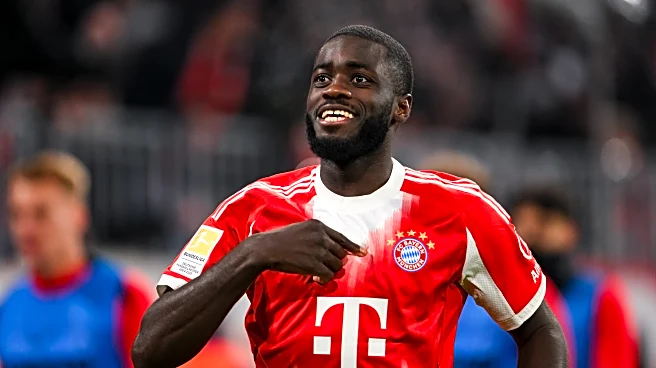What's Happening?
FC Barcelona was founded in 1899 by Hans Gamper and a group of young foreigners in Barcelona. The club's origins reflect the increasing popularity of football and other British sports across Europe. Gamper's
vision for the club was to create an organization open to everyone, regardless of origin, and committed to Catalan identity. FC Barcelona's foundation coincided with a period of growing interest in sports in Catalonia, leading to the creation of a new model of modern leisure.
Why It's Important?
FC Barcelona's foundation laid the groundwork for its role as a symbol of Catalan culture and identity. The club's commitment to democratic values and social integration has made it a beacon of hope and unity for its supporters. FC Barcelona's success on the field has contributed to its global popularity, making it one of the most influential sports clubs worldwide. The club's ability to maintain its cultural roots while achieving sporting excellence underscores its significance in both local and international contexts.
What's Next?
As FC Barcelona continues to evolve, the club faces challenges such as maintaining financial stability and adapting to changes in the sports industry. The ongoing renovations of the Camp Nou stadium and the club's strategic partnerships highlight its commitment to growth and social responsibility. The club's future will likely involve balancing its rich heritage with modern demands, ensuring it remains a leading force in football.
Beyond the Headlines
FC Barcelona's history is intertwined with political and cultural shifts in Spain, particularly during the Franco regime. The club's stance on Catalan independence and its role in political discourse reflect broader societal issues. The rivalry with Real Madrid, known as 'El Clásico,' is not just a sporting event but a cultural phenomenon that encapsulates historical tensions between Catalonia and the Spanish central government.










